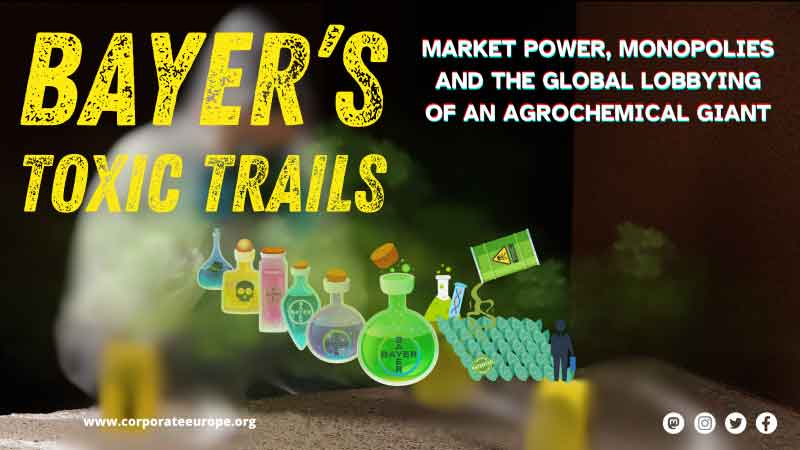
There are some products whose hazards are so overwhelming that serious questions need to be raised whether or not there are any net benefits (any proven benefits minus all the hazards, harms and adverse impacts in the short-term and the long-term) of their continuing use. Various chemical pesticides together constitute one such product.
According to the Pesticides Action Network, which has been warning about the serious health hazards of chemical pesticides, particularly highly hazardous pesticides or HHPs for several years, there are an estimated 385 million unintended pesticide poisoning cases in a year. Pesticides are one of the most frequently used means of committing suicide. Apart from causing vomiting, fainting, skin and other irritations frequently, longer-term pesticides exposure has been linked to several longer-term serious health problems including respiratory illness, cognitive impairment, neurological disease, organ damage and cancer. Pesticides have long been established as potentially health damaging, with some of them linked to cancer. In a recent US study involving not only farmers who actively use pesticides but communities as a whole, researchers contextualized cancer risk associated with pesticide use and smoking. They found that living in an environment heavily exposed to pesticides could increase the incidence of cancer as much as smoking. The results were published in Frontiers in Cancer Control and Society.
“In our study we found that for some cancers, the effect of agricultural pesticide usage is comparable in magnitude to the effect of smoking,” said the study’s senior author, Dr Isain Zapata, associate professor at the Rocky Vista University, College of Osteopathic Medicine in Colorado.
The FAO and WHO have stated that the continued use of highly hazardous pesticides undermines the attainment of several SDGs (Sustainable Development Goals) because of the adverse impacts on health, food security and biodiversity. Pesticides are very harmful for soil health as well as for soil organisms, including earthworms. Pesticides are known to be particularly very harmful for invaluable pollinators like bees.
The manufacture of many pesticides also involves very serious risks, as was alarmingly exposed during the Bhopal gas disaster of 1984 when thousands of people were killed by poisonous gas leak and thousands more died due to longer-term impacts over the next several years.
Pesticides have been required more in places where an artificial need for them was created by mistaken growth of large monocultures of exotic seeds and crop varieties not suitable for local conditions, Indigenous varieties, for example of rice and cotton, which were not much susceptible to pests were given up on a large scale and replaced by exotic varieties that were highly susceptible to pests. If such costly mistakes under the pressure of big business interests are not made, then there would be much lesser need for chemical pesticides.
Subscribe to Our Newsletter
Get the latest CounterCurrents updates delivered straight to your inbox.
I once asked a farmer from a tribal community practising mixed natural farming, growing about 30 crops in her small farm over the year, if she loses some of her crop to ‘pests’. She said yes, but she was not too worried as while cultivating her land she accepts that some of the crop is for insects, some is for birds, just as most of it is for her and her family. Therefore, she said, she never felt the need of using any chemical pesticide.
Bharat Dogra is Honorary Convener, Campaign to Save Earth Now. His recent books include India’s Quest for Sustainable Farming and Healthy Food, Man over Machine and, Protecting Earth for Children and Planet in Peril.














































